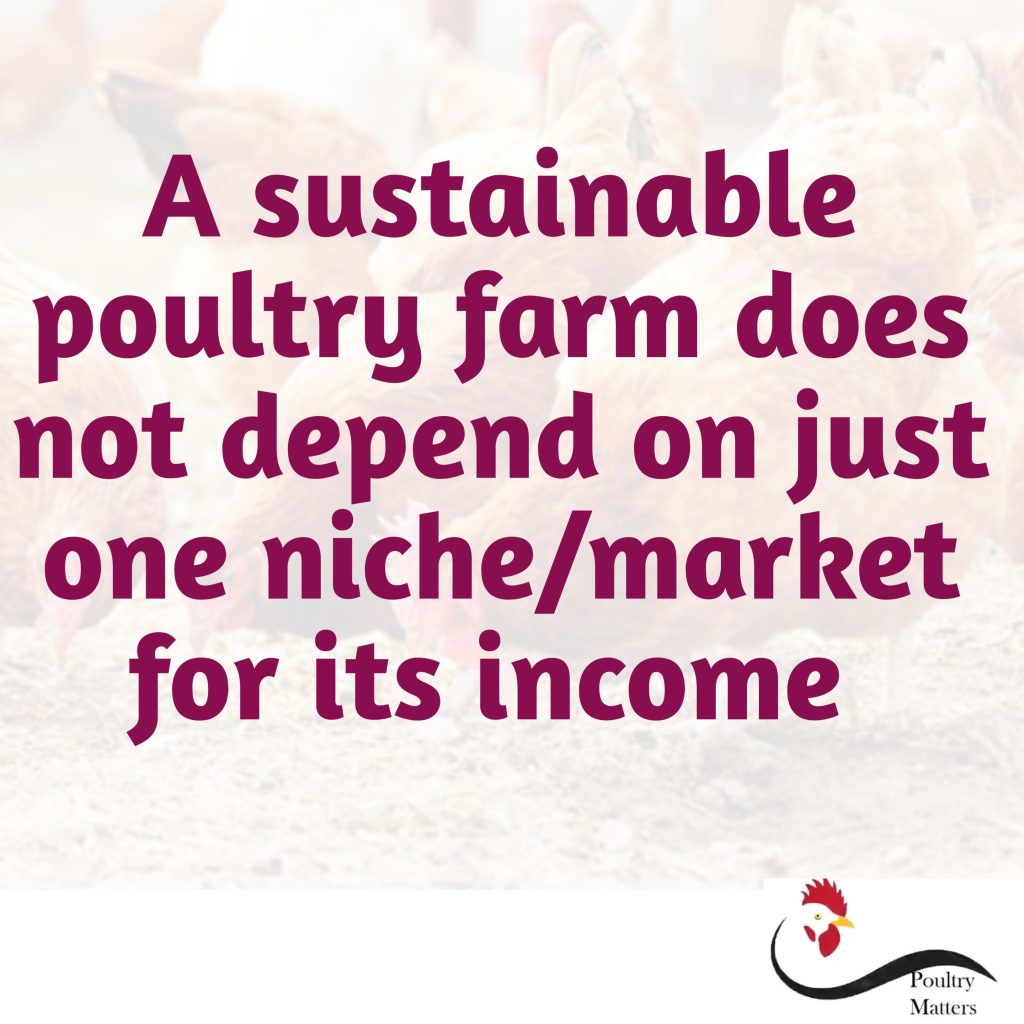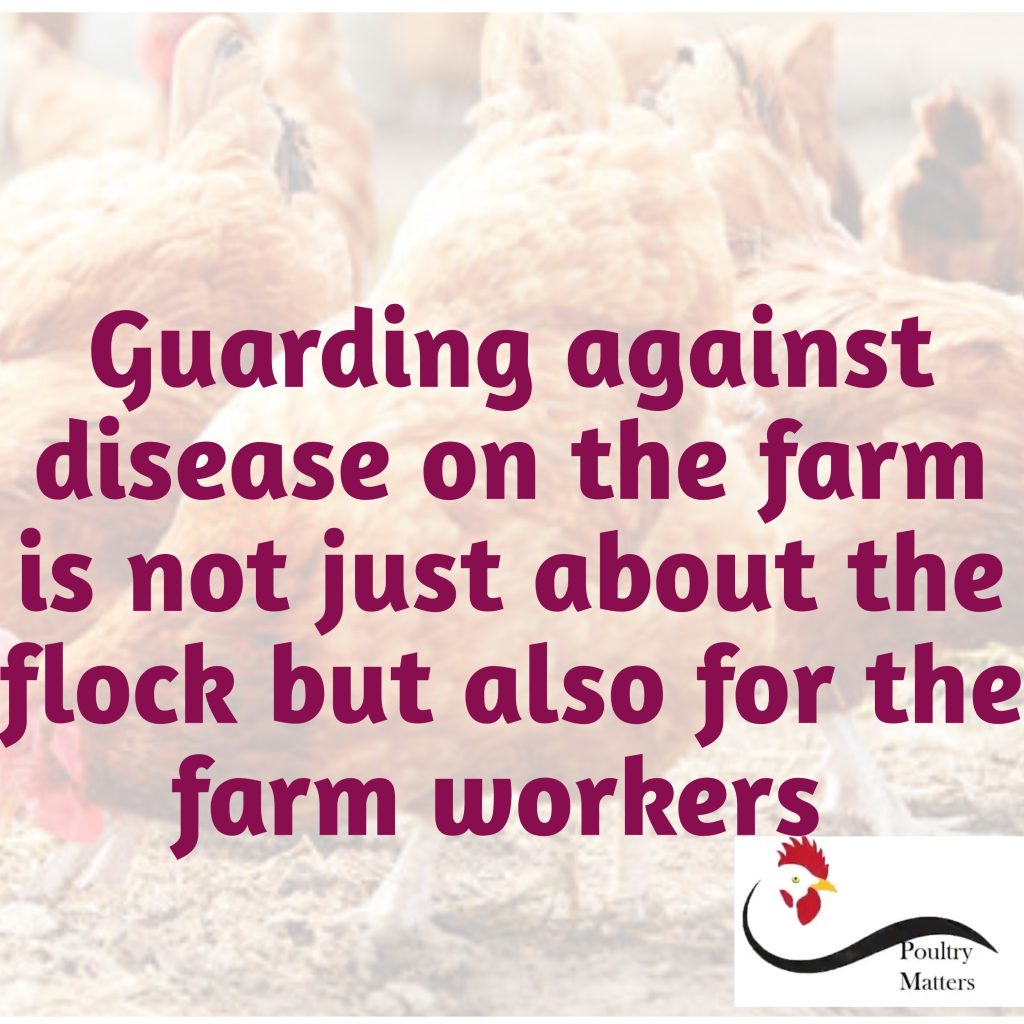Having a sustainable poultry farm is not just about having many birds on the farm, the farm must be successful and profitable in it operations which involves proper management of the birds, careful planning, good farm management practice, etc. leading to optimal productivity and profitability of the farm operations.

KEY FEARURES OF A SUSTAINABLE POULTRY FARM
A poultry farm can be considered sustainable when it possesses the following key features:
1. Healthy and High-Quality Birds
A thriving poultry farm is built on the foundation of raising healthy and productive birds. Strong, disease-resistant flocks consistently yield high output and profitability. By maintaining optimal bird health through proper nutrition, vaccination, and hygiene, the farm can ensure steady productivity, increased profitability, and long-term growth. A farm that consistently generates profit is better positioned for expansion and sustainability.
2. Financial Stability
A sustainable poultry farm must have a strong financial foundation. Consistently making sales at profitable prices ensures steady income generation. However, beyond profit-making, financial sustainability requires effective cost management, wise reinvestment of profits, and strategic planning for long-term growth. By maintaining financial discipline, the farm can withstand market fluctuations and expand its operations over time.
3. Effective Risk Management
Risk is an inevitable part of poultry farming, but a sustainable farm must have proactive strategies to mitigate potential threats. Risks such as disease outbreaks, feed price fluctuations, and extreme weather conditions can disrupt operations. Therefore, early risk identification and mitigation strategies—such as maintaining strong biosecurity, diversifying feed sources, and preparing for seasonal challenges—help build resilience. A farm’s ability to adapt and recover in times of crisis is a key indicator of its sustainability.
4. Ability to Diversify and Explore New Markets
A sustainable poultry farm must expand beyond a single income stream. By diversifying operations—such as selling eggs, broilers, hatchlings, poultry feed, or manure—the farm reduces dependence on one revenue source and becomes more financially flexible. Exploring new market opportunities, such as poultry processing, organic poultry farming, or contract farming, helps the farm stay competitive and resilient in a dynamic market.
5. Operational Efficiency
Sustainability is not just about increasing production but also about maximizing efficiency in farm operations. A well-managed poultry farm ensures optimal resource utilization, effective waste management, and cost control to reduce losses. Implementing smart technologies, proper record-keeping, and automated systems can significantly improve efficiency. The ability to produce more with fewer resources strengthens the farm’s long-term viability and profitability.
By incorporating these five essential elements, a poultry farm can achieve long-term sustainability, increase profitability, and withstand market uncertainties while continuing to grow and expand
KEY STEPS TO SUPPORT HAVING A SUSTAINABLE FARM
Either you are starting a new farm or expanding operations on an existing poultry farm, the following are key steps that will support having a successful and sustainable poultry farm business –
Develop a business plan –
A business plan is like a roadmap that guides the entrepreneur or investor how to achieve desired success, as a roadmap, it gives clarity, structure and strategic approach to achieving business goal(s). Similarly, having a business plan for your poultry farm business, the plan becomes a roadmap guiding you effectively on what to be done or how to do it in achieving desired success. Read more – https://poultrygist.com.ng/2022/03/why-do-feasibility-study-before-investing/
Choose the right location for the farm –
Location is a crucial factor impacting on your farm success – the right location provides the farm with essential amenities for success, such as – easy accessibility to market and farm supplies, accessibility to clean water, easy and effective drainage system.
Provide an ideal housing for the flock –
The design and structure of the poultry house has direct impact on the welfare and health of the flock, consequently the productivity of the flock. Therefore, the right poultry house must be well ventilated, spacious, proper lighting, and dry flooring. Read more https://poultrygist.com.ng/2024/08/effective-poultry-housing-system-essential-for-poultry-profit-optimization/
Buy quality birds –
Your farm needs healthy birds to thrive, therefore, when buying your birds only buy high quality birds with strong immunity against disease and have good growth rate. Sick birds on the farm are like a hole in the ship.
Adopt effective biosecurity procedure for the farm –
As the say goes “prevention is better than cure” it is better for the farm to avoid the entry of disease into the flock than treating disease, thus, adopting strict and effective biosecurity measures is essential for the farm to succeed and remain sustainable. Read more https://poultrygist.com.ng/2024/10/biosecurity-in-poultry-farming/

Conclusion –
Building a sustainable poultry farm requires more than just raising birds—it demands strategic planning, financial discipline, risk management, and operational efficiency. By ensuring the health of the flock, maintaining financial stability, mitigating risks, diversifying income streams, and optimizing operations, poultry farmers can create a thriving, profitable, and resilient business. Sustainability in poultry farming is not just about survival but about growth, adaptability, and long-term success in an ever-evolving industry.
Are you ready to take your poultry farm to the next level? Poultrygist, is your colleague, partner, and friend in all poultry matters. Whether you need expert guidance, quality poultry supplies, or innovative solutions to improve your farm’s sustainability, we are here to help!
Contact us today and let’s build a thriving poultry business together!
Cheers.
